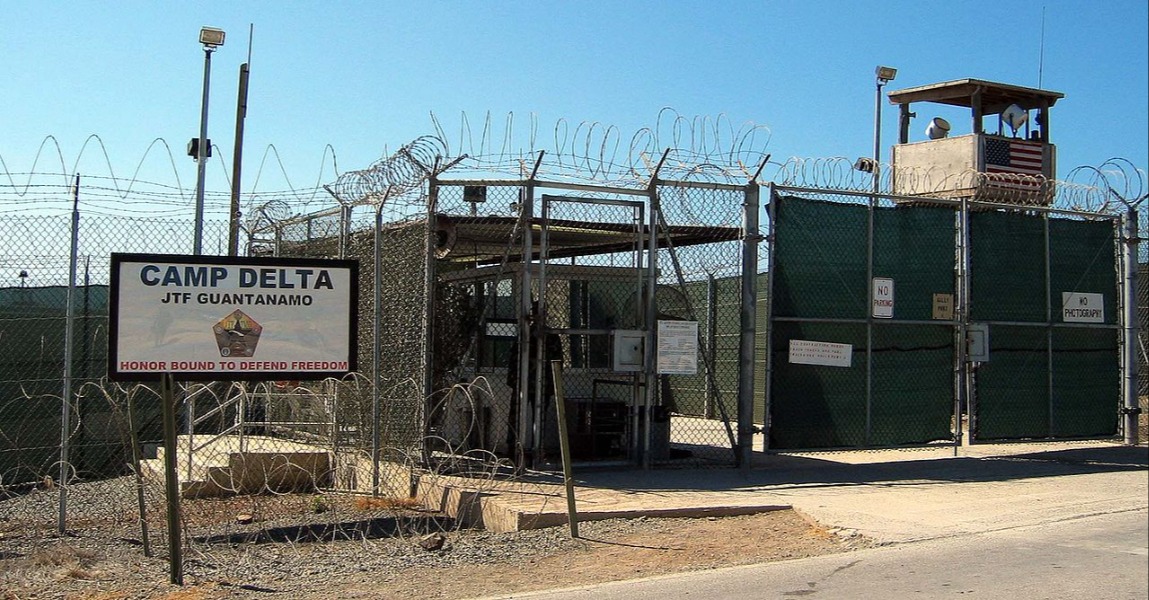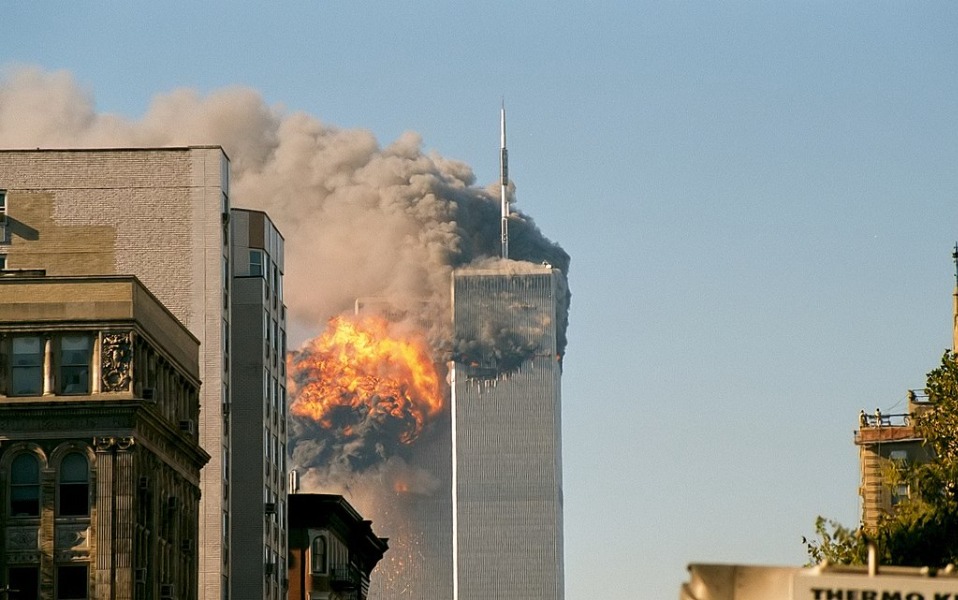What Trump Should Do About Terrorism (but Probably Won't)
Since the start of his presidential campaign, Donald J. Trump has repeatedly warned about “a major threat from radical Islamic terrorism,” and he has tweeted (and Twitter is the forum used for all serious discussions of policy) as follows:
Our country is facing a major threat from radical Islamic terrorism. We better get very smart, and very tough, FAST, before it is too late!
Published by The Lawfare Institute
in Cooperation With

Since the start of his presidential campaign, Donald J. Trump has repeatedly warned about “a major threat from radical Islamic terrorism,” and he has tweeted (and Twitter is the forum used for all serious discussions of policy) as follows:
Our country is facing a major threat from radical Islamic terrorism. We better get very smart, and very tough, FAST, before it is too late!
— Donald J. Trump (@realDonaldTrump) December 9, 2015
And while foreign policy in general got little attention in his “America First” inaugural speech, Trump did single out counterterrorism, promising to “unite the civilized world against radical Islamic terrorism, which we will eradicate completely from the face of the Earth.” Since taking power, Trump has justified an exclusionary executive order on visas and refugees (not, he claims, a Muslim ban) in the name of fighting terrorism, and on his watch, the military conducted a raid in Yemen that led to the death of one U.S. Navy SEAL and more than 20 civilians, including children. So it is safe to say that under Trump, terrorism will remain at the top of the U.S. national security agenda.
Assessing the danger of terrorism is difficult, because so much varies by region. At home, only 94 Americans have died from jihadist attacks since 9/11—far fewer than experts (including myself) anticipated in the scary weeks after 9/11. Indeed, although it often goes unmentioned, but before Omar Mateen killed 49 people at the Pulse gay nightclub in Orlando, right-wing terrorists had killed more Americans in the post-9/11 era than had violent Islamist radicals.
The public’s perception of the danger of terrorism is far worse than the reality. Even after fifteen years of a relentless global counterterrorism campaign, 40 percent of Americans believe the ability of terrorists to launch a major attack on the United States is greater than it was at the time of the 9/11 attacks, and another 31 percent believe it is simply the same. There is no evidence for either of these propositions.
Some of this misperception stems from the post-9/11 media environment. After the towers fell, reporting of terrorist plots, let alone actual attacks, has skyrocketed, particularly if the perpetrators have even weak connections to jihadist groups like al Qaeda or its even more evil spinoff, the Islamic State. The globalization of media meant that Islamic State attacks in Dhaka or al Qaeda attacks in Bali receive considerable press coverage, to say nothing of the attacks in even more relatable and accessible locales in Europe. All of this makes Trump’s claim that the media have neglected terrorism seem bizarre to terrorism experts, where the normal complaint is that the media do the terrorists’ job for them by giving them so much free publicity. Indeed, although the terrorism problem in Europe is more severe than that facing the United States, it too has not surged dramatically compared to past decades. The 1970s and 1980s saw many attacks. Recent years have seen bloody and horrific attacks, like the 2015 shootings and bombings in Paris that killed 130 people—but 1988 saw 440 people die, most of whom perished when Libyan agents bombed Pan Am 103.
The political impact in Europe and the United States is far greater than the danger to citizens’ lives. Trump scored many points playing up the threat of Muslim immigrants and Syrian refugees, with the terrorism danger (despite being low to nil statistically) looming in the background. In Europe the politics are even nastier, and in a span of a few short years xenophobic movements have gained extraordinary popularity and influence almost everywhere. Across the continent and often regardless of domestic economic stability or even ethnic diversity, European nations have experienced a surge of anti-Muslim, anti-immigrant, nationalism.
While the American public has an exaggerated sense of the terrorism threat, there has been a real surge in violence outside the West. Terrorism has exploded throughout much of South Asia, the Middle East, and Africa. Terrorist groups have eagerly exploited and exacerbated the security vacuum created by the civil wars that have killed more than one hundred thousand in Afghanistan, tens of thousands in Pakistan, tens of thousands in Nigeria, thousands in Yemen, thousands in Libya, and hundreds of thousands in Syria. Countries like Turkey, Mali, Lebanon, and others near these hotbeds have also suffered from spillover violence.
Far more than domestic attacks, the real danger to U.S. interests is in Muslim parts of Asia, Africa, and the Middle East. Stability and governance in many countries have collapsed and they are under strain in others. This wave of instability and the terrorist violence it spawns have an impact beyond the immediate human cost. They have geopolitical implications as threatened states fearfully react, with countries like Saudi Arabia intervening in the quagmire of Yemen’s civil war and as regional tension with Iran more generally escalate. The threat of terrorism also enables repressive U.S. partners to resist pressure for political reform—an example here being Egypt’s claim that all forms of religious opposition are linked to terrorism.
The U.S. response focuses on part of these dangers, but only in part. The post-9/11 efforts developed by the Bush administration and continued under the Obama administration have resulted in an effective combination of global intelligence gathering, security service disruption, and targeted strikes (particularly by drones) that has taken a real toll on terrorist groups, especially al Qaeda. For partner countries with stable governments, the United States partners with local security services to monitor, detain, arrest, and jail suspected terrorists. In less stable places like Pakistan, Yemen, and Somalia, targeted killing of terrorist leaders eliminates critical bomb-makers and logisticians, while those that survive are forced into hiding. Indeed, the success of these counterterrorism efforts has contributed to the recent push by al Qaeda and now the Islamic State to encourage lone wolves.
This approach, however, is less effective when jihadists control territory, and here is where the Obama administration often came up short. In areas where civil wars rage, the United States will have to step up and improve training programs for allied militaries and partner sub-state groups. We need more competent good guys—or at least more competent less-bad guys—to push back the Islamic State and other groups on the ground and ideally hold the territory against any renewed attacks or guerrilla operations.
It is easy to recommend this policy; the difficulty inevitably lies in its execution. Military training programs in Syria and Iraq have often failed disastrously. In both countries, despite months or even years of training, U.S.-trained forces repeatedly fled before the enemy (or, in Syria, sometimes even before). When the Islamic State took Mosul in June 2014, it only took perhaps 1,000 fighters to force 30,000 well-armed Iraqi forces to abandon the city, leaving behind massive stockpiles of sophisticated equipment, small arms, and ammunition for their jihadist foes.
Starting small is vital. From small unit leaders through to senior officers, the United States will need to carefully vet—here’s a place where “extreme vetting” may be a good idea—the personnel in its training programs. The second critical factor is improving governance. Instead of funding large financial aid packages or pushing expansive democratization programs, the U.S. should first focus on minimizing corruption and assisting in basic service provision.
At the same time as the Trump administration should try to rectify past failures, it must also be willing to exploit the Obama administration’s quite real successes. The United States must also be prepared for the full collapse of the so-called caliphate, which has steadily lost ground and seen its recruitment of foreign fighters and funding dry up. Assuming it continues to lose territory, many of its local fighters will go underground or return home. For the thousands of foreigners returning home or moving somewhere else, at least some among them will decide to continue the fight at home or wherever the opportunity arises. As it suffers further losses, the Islamic State itself will encourage more lone wolves to maintain its image and remain relevant to both its supporters and enemies. The fall of Raqqa, albeit an important accomplishment, will not mark final victory.
The United States, however, cannot and should not be everywhere. It will be crucial that the new president delineates between areas of strong interest and interests that are peripheral. Some areas are often better left to allies (and yes, allies are important): France, for example, can continue to take the lead in much of North and West Africa.
In an ironic twist, it could prove more challenging for the new president to navigate domestic waters than the shoals of the Middle East, and here I worry that the new president will make things worse. The first problem is institutionalization. Under both Bush and Obama, new and controversial counterterrorism instruments—targeted killings, increased domestic surveillance, aggressive FBI sting operations, detention without trial, and so on—are at the heart of U.S. counterterrorism efforts. In addition, the United States is bombing the Islamic State in Iraq and definitely in Syria with only less than clear legal justification.
Since 9/11, counterterrorism policy has been largely the province of the executive branch, with some modification by the courts and some by Congress. Despite its interventions in the interrogation and detention debates, Congress, perhaps the most important branch in the long-term, has been conspicuously absent under both parties’ leadership. The dearth of public debate and legislation, regardless of your opinion about the policies in question, has created the current environment where either government lawyers can be forced into legalistic gymnastics trying to justify programs or operations become unnecessarily restricted for lack of clear authority. The proper participation of Congress in the policy process will put the executive branch and the courts on a sounder footing and ensure longer-term planning necessary for programs develops properly. Trump, however, so far seems skeptical on divided government and the separation of powers.
The unrealistic domestic assessment of the terrorism threat reflects another serious counterterrorism failure: resilience. President Obama had tried repeatedly to talk down the threat, starting with a landmark speech in 2013 in which he described al Qaeda as on “the path to defeat” and noting that another 9/11 is unlikely. He was right. But the rise of the Islamic State and its high-profile atrocities have fostered the perception that the terrorist threat to the U.S. homeland has skyrocketed. Public polling and the election rhetoric seem to demonstrate definitively that Obama’s efforts to build resilience failed. It remains easy for a terrorist group, or even some lucky amateurs, to sow fear and disrupt the nation with even minor attacks—the Boston Marathon bombings, which killed three people, resulted in the shutdown of an entire metropolitan area and impacted the whole country.
Another unfortunate consequence of this election is the real risk to one of America’s greatest counterterrorism successes: integration of immigrant communities. In contrast to Europe, the American Muslim community is remarkably well integrated and regularly cooperates with law enforcement. Ideally, the new president would press state and local officials to continue and expand their work with Muslim communities, not just to stop radicalism in their ranks but also to protect them from right-wing extremists. Besides being the right thing to do, good law enforcement relations with Muslim Americans, especially in an atmosphere in which many face daily security threats, will help ensure that radicalization remains low and that if and when it occurs, the community is comfortable with and motivated to cooperate with law enforcement.
We all know this is unlikely, and in fact Trump is likely to further alienate this community. Nor will the damage go away once Trump leaves office. Regrettably, the demonization of the American Muslim community Trump has unleashed—and which is so unlike the behavior of President Bush—will endure with potentially serious counterterrorism (and more broadly social and moral) implications. Now that this door is open (or maybe off its hinges) it seems likely other politicians will be tempted to walk through.


.jpeg?sfvrsn=6117c6bf_4)


